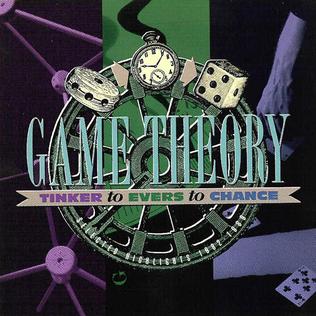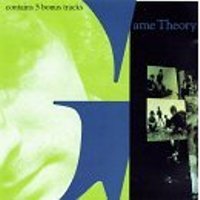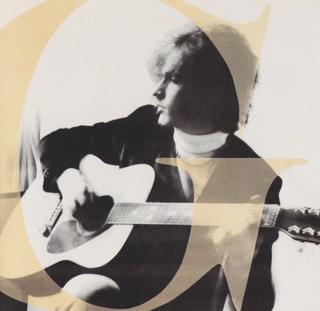Paisley Underground is a musical genre that originated in California. It was particularly popular in Los Angeles, reaching a peak in the mid-1980s. Paisley Underground bands incorporated psychedelia, rich vocal harmonies and guitar interplay, owing a particular debt to 1960s groups such as Love and the Byrds, but more generally referencing a wide range of pop and garage rock revival.

Game Theory was an American power pop band, founded in 1982 by singer/songwriter Scott Miller, combining melodic jangle pop with dense experimental production and hyperliterate lyrics. MTV described their sound as "still visceral and vital" in 2013, with records "full of sweetly psychedelic-tinged, appealingly idiosyncratic gems" that continued "influencing a new generation of indie artists." Between 1982 and 1990, Game Theory released five studio albums and two EPs, which had long been out of print until 2014, when Omnivore Recordings began a series of remastered reissues of the entire Game Theory catalog. Miller's posthumously completed Game Theory album, Supercalifragile, was released in August 2017 in a limited first pressing.

Donnette Ruth Thayer is a vocalist, guitarist, and songwriter most active in the 1980s and early 1990s indie rock scenes of Northern California. Thayer was a member of the band Game Theory, and later formed Hex with Steve Kilbey of The Church.

Michael Quercio is an American musician. He is the founder, bassist and lead singer of The Three O'Clock, and coined the term Paisley Underground as the name of a musical subgenre.

What If It Works? is the Loud Family's seventh full-length album, a studio collaboration with Sacramento-based pop musician Anton Barbeau released in 2006. A March 2022 reissue of the album, with eleven bonus tracks, was announced by Omnivore Recordings.

Lolita Nation is the fourth full-length album by Game Theory, a California power pop band fronted by guitarist and singer-songwriter Scott Miller. Originally released in 1987 as a double LP, the album was reissued by Omnivore Recordings in February 2016 as a double CD set with 21 bonus tracks.

Two Steps from the Middle Ages (1988) is the fifth studio album by power pop band Game Theory.

Tinker to Evers to Chance is a compilation album of songs by Game Theory, released in 1990. The liner notes describe the included tracks as songs which "reached national obscurity, as opposed to local obscurity." Band leader Scott Miller went on to form The Loud Family.

The Big Shot Chronicles is Game Theory's third full-length album, released in 1986. Produced by Mitch Easter, it was recorded with a new line-up of Game Theory members after leader and songwriter Scott Miller moved the band's base from Davis to San Francisco, California. The album was reissued on September 23, 2016, on Omnivore Recordings as part of the label's re-issue campaign of the Game Theory catalog.

Scott Warren Miller was an American singer, songwriter and guitarist, best known for his work as leader of the 1980s band Game Theory and 1990s band The Loud Family, and as the author of a 2010 book of music criticism. He was described by The New York Times as "a hyperintellectual singer and songwriter who liked to tinker with pop the way a born mathematician tinkers with numbers", having "a shimmery-sweet pop sensibility, in the tradition of Brian Wilson and Alex Chilton."

Arrive Without Travelling, released in 1985, is the second album by The Three O'Clock, and their I.R.S. Records debut. The title was taken from a line from "The Inner Light", a song by George Harrison, which in turn derived the phrase from verse 47 of the Tao Te Ching, a Chinese classic text.

Alternate Learning was a power pop/new wave band from 1977 to 1982, based in Davis, California and fronted by Scott Miller, a singer-songwriter later known for his work as leader of the 1980s band Game Theory and 1990s band the Loud Family.

Real Nighttime is the second full-length album from Game Theory, a California power pop band founded by guitarist and singer-songwriter Scott Miller. Released in 1985, the album is cited as "a watershed work in '80s paisley underground pop." A 30th anniversary reissue was released in March 2015, on CD and in a limited first pressing on red vinyl, with 13 bonus tracks.

Pointed Accounts of People You Know is the second release from Game Theory, a California power pop band fronted by guitarist and singer-songwriter Scott Miller. Initially released in 1983 as a six-song EP, a remastered version on 10-inch clear vinyl was reissued in November 2014 by Omnivore Recordings.

Blaze of Glory is the 1982 debut album from Game Theory, a California power pop band founded by guitarist and singer-songwriter Scott Miller. After Miller's death in 2013, the album was reissued by Omnivore Recordings in a remastered edition with 15 bonus tracks which was released on CD and vinyl in 2014.

Distortion of Glory is a 1993 compilation album from the band Game Theory, a California power pop band fronted by guitarist and singer-songwriter Scott Miller. Issued on CD by Alias Records, it anthologizes the band's debut album, most of the songs from two subsequent EPs, and one rare single.

Dead Center is a compilation album from Game Theory, a California power pop band fronted by guitarist and singer-songwriter Scott Miller. Initially released in France on Lolita Records in 1984, a newly remastered version was released on CD on November 24, 2014 on Omnivore Recordings.

George Gilbert "Gil" Ray was an American rock drummer, guitarist, and vocalist, best known for his recordings in the 1980s and 1990s as a member of the bands Game Theory and The Loud Family. In late 2012, he joined Rain Parade as drummer for a series of reunion performances.

Supercalifragile is the sixth and final studio album by Game Theory, a California power pop band founded in 1982 by guitarist and singer-songwriter Scott Miller. At the time of his death in 2013, Miller had started work on the recording, which was to be Game Theory's first new album since 1988. Producer Ken Stringfellow and executive producer Kristine Chambers Miller enlisted the participation of numerous past collaborators and friends of Miller to finish the album after Miller's death, using Miller's partially completed recordings and source material. Supercalifragile was released in August 2017.

Across the Barrier of Sound: PostScript is a 2020 compilation album consisting of material recorded in 1989 and 1990 by Game Theory, a California power pop band founded in 1982 by guitarist and singer-songwriter Scott Miller. The band's lineup during this period included Michael Quercio, who had previously fronted the Paisley Underground group The Three O'Clock.




















